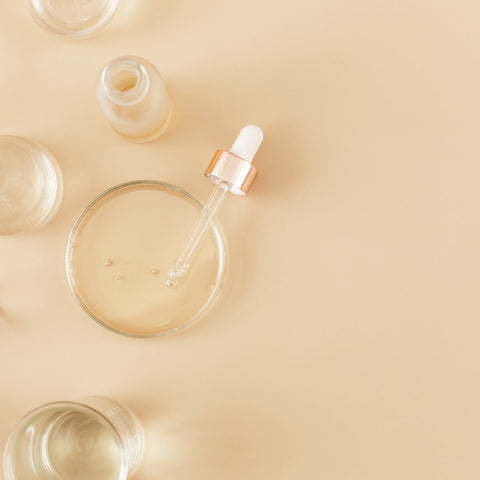Hyaluronic acid is a hydrophilic complex sugar found naturally in the extracellular matrix of the skin and is a widely used ingredient in cosmetic formulations. Its ability to retain water makes it an essential component in hydrating gels, exfoliating serum, and face serum products. With various molecular weight hyaluronic acid options available, cosmetic chemists can target specific skin layers to enhance tissue hydration and skin plumping. These features make hyaluronic acid serum suitable for nearly all skin types, including sensitive, dry, oily, and mature skin.
Why molecular weight matters
When choosing a hyaluronic acid serum, understanding the molecular weight is critical. High molecular weight hyaluronic acid remains on the skin’s surface, creating a moisture barrier and improving skin flexibility. In contrast, low molecular weight and hydrolyzed hyaluronic acid penetrate deeper, supporting collagen losses, reducing crow’s feet, and improving elastin fibers. Ingredients like sodium hyaluronate and sodium hyaluronate crosspolymer are common derivatives that offer diverse hydration profiles. Sodium acetylated hyaluronate is another variant known for enhanced skin absorption and improved retention in the stratum granulosum.
Key ingredients in cosmetic formulations
A typical formulation for a triple hyaluronic acid facial serum includes distilled water or DI water as the base, along with aloe vera liquid or aloe barbadensis leaf juice powder for additional soothing properties. Functional actives such as pro-vitamin B5, hydrolyzed rice protein, yeast extract, and ferment filtrate are often included to boost hydration and support the skin barrier. Natural additions like açaí oil, black goji berry extract, and tremella fuciformis polysaccharide (commonly known as snow mushroom) bring antioxidant and dermo-cosmetic treatment benefits.
Formulation tools and techniques
Formulating a water-based moisturizer or serum involves accurate measurement and mixing tools such as a glass measuring cup, stick blender, paddle mixer, and dropper lids. Achieving a water-like consistency or a viscous texture depends on ingredients like xanthan gum and hydrolyzed hyaluronic acid. During formulation, cosmetic formulators also consider the water phase, fatty acids, and cosmeceutical actives to meet specific formulation requirements aligned with cosmetic science program standards.
Preservation and safety
To ensure long shelf life and avoid bacterial growth or microbial contamination, cosmetic formulas often include preservatives like liquid germall plus, liquid germall™ plus, dehydroacetic acid, benzyl alcohol, or preservative - water soluble PF. Ingredients derived from microbial fermentation, such as L-ascorbic acid, are tested with methods like raman spectroscopy to maintain efficacy. Patch testing is strongly recommended before using any new serum, especially in DIY skincare kits or skin peels, to reduce dermatological diagnostic concerns.
Application and packaging considerations
Applying hyaluronic acid serum to damp skin helps enhance skin hydration and support the skin barrier. It can be used in the morning and evening, layered under a body moisturizer or hydrating serum. Ideal packaging includes a frosted glass bottle with a serum pump or dropper lids. Other considerations for packaging recyclability include the use of the triman logo for environmental compliance. Maintaining hygiene during formulation and storage reduces the risk of contamination and supports better consumer safety.
Education and product development
Whether you are a skincare enthusiast or exploring certification courses in cosmetic science, understanding the formulation and skin benefits of hyaluronic acid can support your knowledge in creating effective products. Its versatility allows use in products ranging from hydroalcoholic solutions to water-based creams. Hyaluronic acid, in its various forms, continues to be a cornerstone in dermo-cosmetic treatment for improving the skin barrier and addressing skin aging.
Please contact us to get started on your cosmetic formulation project.
